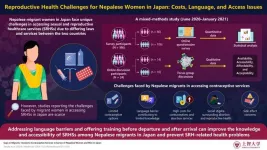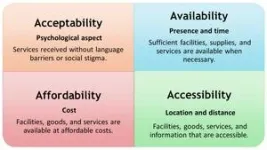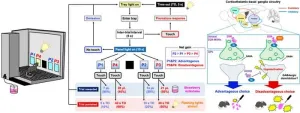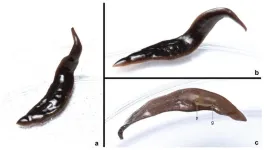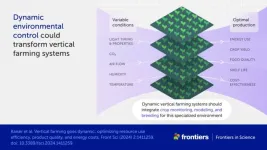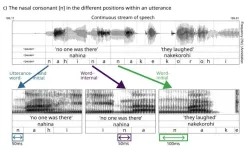Despite a substantial Nepalese community in Japan many Nepalese women face significant challenges in accessing essential sexual and reproductive health services (SRHSs) due to language barriers and differences in healthcare laws and services between Nepal and Japan. In Nepal, women have free access to a wide range of contraceptive and abortion services, while Japan places more restrictions on certain contraceptives and does not provide free abortion services. These limited options make women more reliant on their male partner to use contraceptives for birth control. These challenges in accessing contraceptives, especially female-oriented contraceptives, lead them to acquire contraceptives from Nepal, increasing the risk of inappropriate use, unintended pregnancies, and other serious health complications.
A recent study by a team of researchers led by Professor Masako Tanaka from the Faculty of Global Studies, Sophia University, Japan, sheds light on the challenges faced by Nepalese migrants in accessing SRHSs in Japan. The research team included Dr. Rachana Manandhar Shrestha from the Institute of Asian, African, and Middle Eastern Studies at Sophia University and the Department of Community and Global Health at The University of Tokyo, Japan; Dr. Richa Shah from the Health Action and Research, Nepal; Dr. Divya Bhandari from the Department of Global Health and Population at Harvard University, USA; and Dr. Bijay Gyawali from the Amoha Center for Mental Health and Well-Being, Nepal. This study published in Volume 12, Issue 13 of the journal Healthcare on 2 July 2024, examines the use of different contraceptives and access available to Nepalese men and women both in Nepal and after migrating to Japan.
Sharing the motivation behind this study, Prof. Tanaka shares, “Being a certified social worker and domestic violence counsellor, I have observed several unintended pregnancy cases among migrant women. I also lived outside of Japan for 2 decades. So, I was familiar with contraceptive options abroad. Therefore, I could understand the difficulties of migrant women in Japan.”
The research team investigated the challenges affecting access to contraceptives and the reasons behind them, by using a mixed-methods approach with both qualitative and quantitative data. They conducted an online questionnaire survey with 186 participants (80 women and 106 men), to understand the general trends in contraceptive use and access to reproductive health services between June 2020 to January 2021. To gain deeper insights, they conducted virtual focus-group discussions (FGDs) with 24 participants comprising of 10 men and 14 women. These discussions brought to light personal experiences, cultural barriers, and several specific issues that were not captured by the survey.
In the FGDs, participants discussed their general access to sexual and reproductive health information and services in Nepal and Japan, sharing their contraceptive needs, usage, support from their partners or spouses, and the challenges faced in accessing SRHSs in Japan. The responses from the discussions were analyzed using 4A framework (availability, accessibility, acceptability, and affordability).
The study found that condoms were the most used contraceptive method both in Nepal and Japan. However, traditional contraceptive methods such as the rhythm method and withdrawal were prevalent in Japan.
Many participants also brought contraceptives with them to Japan, including condoms, oral contraceptives, and emergency contraceptives. The most common reasons were the ease of obtaining contraceptives, minimal cost, free access, and the absence of a language barrier in Nepal. In contrast, participants highlighted the language barrier, higher cost, not knowing how to obtain them, concerns about side effects, lack of insurance coverage, and cultural and social stigma as challenges in accessing contraceptive and abortion services in Japan. Additionally, the researchers pointed out that the lack of options and the high costs of contraception and abortion are common issues faced not only by migrant women but also Japanese women.
Furthermore, this study also highlighted the importance of incorporating SRH education into pre-departure training in Nepal and organizing post-arrival training in Japan. Elaborating on this, Prof. Tanaka adds, “Training programs will be developed and implemented on sexual and reproductive health services, including contraception available in Japan for migrants before and after their arrival. Nonprofits and migrant groups will provide outreach and support to meet the needs of migrants, and health care workers will be trained to overcome cultural and language barriers.”
“I hope that policies will be implemented that embody the spirit of universal health coverage, ensuring that contraceptive services are accessible, affordable, and available in destination countries, so that migrants traveling across borders have access to the same services as they had in their countries of origin,” concludes a hopeful Prof. Tanaka.
We hope that this study paves the way for reforming laws and policies that ensure universal access to SRHSs worldwide.
Reference
■Title of original paper:
Gaps in Migrants’ Access to Contraceptive Services: A Survey of Nepalese Women and Men in Japan
■Journal:
Healthcare
■DOI:
10.3390/healthcare12131320
■Authors:
Masako Tanaka1,2, Rachana Manandhar Shrestha2,3, Richa Shah4, Divya Bhandari5, and Bijay Gyawali6
■Affiliations
1 Faculty of Global Studies, Sophia University, Japan
2 Institute of Asian, African, and Middle Eastern Studies, Sophia University, Japan
3 Department of Community and Global Health, The University of Tokyo, Japan
4 Health Action and Research, Nepal
5 Department of Global Health and Population, Harvard University, USA
6 Amoha Center for Mental Health and Well-Being, Nepal
About Sophia University
Established as a private Jesuit affiliated university in 1913, Sophia University is one of the most prestigious universities located in the heart of Tokyo, Japan. Imparting education through 29 departments in 9 faculties and 25 majors in 10 graduate schools, Sophia hosts more than 13,000 students from around the world.
Conceived with the spirit of “For Others, With Others,” Sophia University truly values internationality and neighborliness, and believes in education and research that go beyond national, linguistic, and academic boundaries. Sophia emphasizes on the need for multidisciplinary and fusion research to find solutions for the most pressing global issues like climate change, poverty, conflict, and violence. Over the course of the last century, Sophia has made dedicated efforts to hone future-ready graduates who can contribute their talents and learnings for the benefit of others, and pave the way for a sustainable future while “Bringing the World Together.”
Website: https://www.sophia.ac.jp/eng/
About Professor Masako Tanaka from Sophia University
Professor Masako Tanaka is a development practitioner, and a certified social worker engaged in various civil society activities. She obtained a Ph.D. in Development Studies from Nihon Fukushi University, Japan. She is currently a Professor in the Faculty of Global Studies and a Chairperson of the Graduate Program in Area Studies at Sophia University. She has authored over 23 papers and books on migration, disasters and human rights, specifically on gender-based violence. Her current research areas include the sexual and reproductive health and rights of migrants in Japan, and migration studies particularly on the role of migrants’ organizations and states of providing native language and heritage language education for migrant children at destinations and returned children in their home countries.
END
